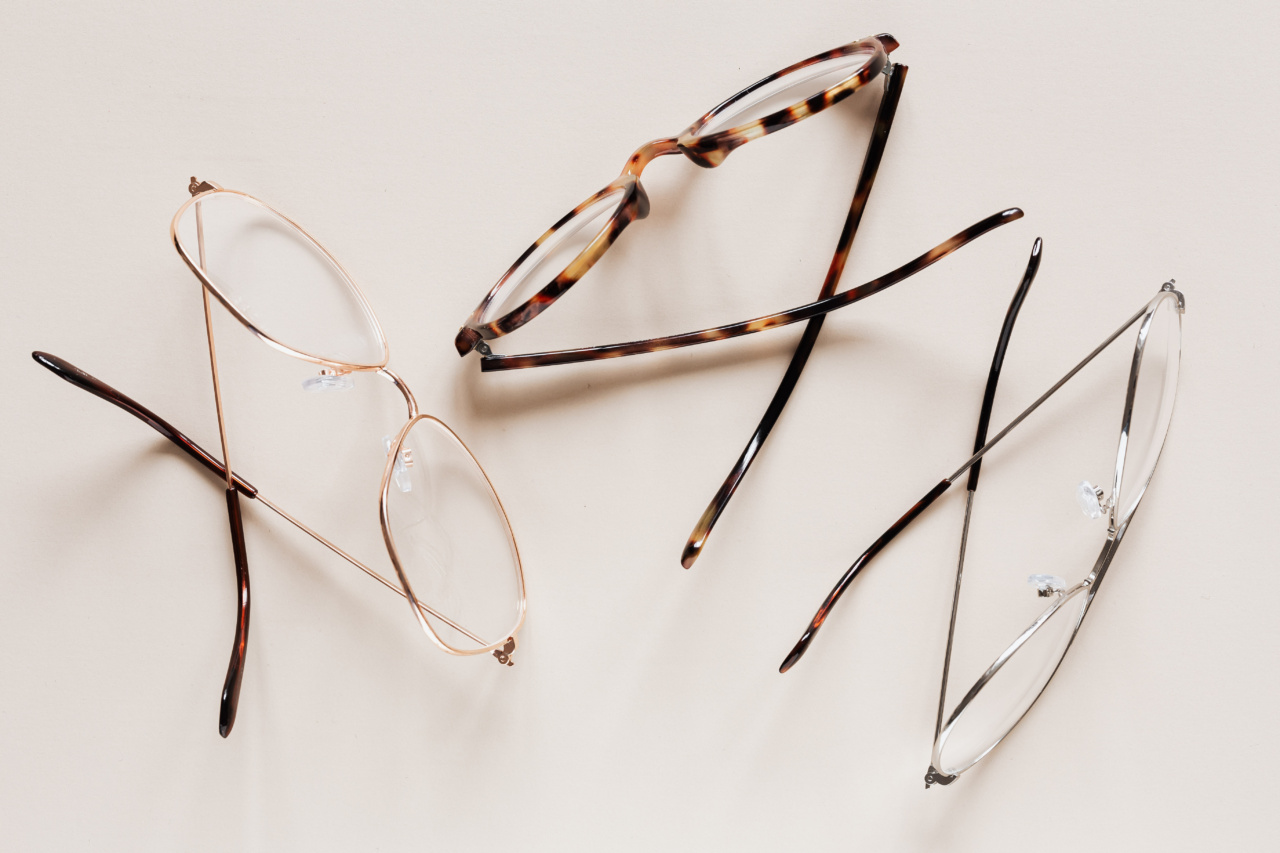Having clear and sharp vision at night is crucial for various activities such as driving, navigating in low-light environments, and even stargazing.
However, many factors can impair our night vision, making it difficult to see clearly and potentially causing safety concerns. In this article, we will explore the common culprits that impair night vision and provide effective solutions to fix them.
1. Age-Related Changes
As we age, our eyes undergo natural changes that can affect our vision, especially at night. The most common age-related change is a reduction in the amount of light that reaches the retina, the light-sensitive tissue at the back of the eye.
Additionally, the pupil becomes smaller and less responsive to changes in light, resulting in a decreased ability to adapt to low-light conditions.
To mitigate the effects of age-related changes on night vision, it is essential to have regular eye examinations to detect and correct any underlying eye conditions.
Additionally, wearing glasses or contact lenses with anti-glare coatings can enhance vision clarity in low-light situations.
2. Vitamin Deficiencies
Vitamins play a crucial role in maintaining optimal eye health, including night vision. Vitamin A, in particular, is essential for the functioning of the retina.
Deficiencies in vitamin A can lead to a condition called night blindness, where individuals struggle to see clearly in dim light.
To fix vitamin deficiencies impairing night vision, it is recommended to include food sources rich in vitamin A in your diet. These include carrots, sweet potatoes, spinach, kale, and liver.
Alternatively, you can consult with your healthcare provider to determine if vitamin supplements are necessary to address any deficiencies.
3. Excessive Light Exposure
Exposure to excessive light, especially from high-intensity sources such as oncoming vehicle headlights or bright electronic displays, can temporarily impair night vision.
This phenomenon is known as the “dazzling effect,” where your eyes struggle to adjust to the sudden contrast in lighting conditions.
When faced with excessive light exposure, it is important to minimize the impact on your night vision. Consider using polarized sunglasses while driving at night to reduce glare from headlights.
Additionally, avoid using electronic devices with bright screens before heading out into darker environments, as they can temporarily diminish your ability to see clearly in the dark.
4. Cataracts
Cataracts, a common eye condition associated with aging, can impair both daytime and nighttime vision. They occur when the lens of the eye becomes cloudy, resulting in blurred or hazy vision.
When cataracts progress, they can significantly impact night vision, causing difficulty in perceiving contrast and distinguishing objects in low-light settings.
The most effective way to fix impaired vision caused by cataracts is through surgery. Cataract surgery involves removing the cloudy lens and replacing it with an artificial lens, restoring clear vision.
If you suspect cataracts are affecting your night vision, it is crucial to consult with an ophthalmologist for a thorough examination and appropriate treatment options.
5. Medications
Certain medications, both prescription and over-the-counter, can have adverse effects on night vision.
Some drugs, such as antihistamines, anti-anxiety medications, and antidepressants, can cause blurred vision, decreased visual contrast, and pupil dilation, all of which can impair night vision.
If you suspect that your night vision is being affected by medications you are taking, it is essential to consult with your healthcare provider.
They may be able to adjust your dosage or recommend alternative medications that have fewer side effects on vision. However, never modify your medication regimen without professional guidance.
6. Poor Lighting Conditions
Inadequate or inappropriate lighting conditions can make it challenging to see clearly at night. Poorly lit streets, dimly lit rooms, or insufficient lighting in work environments can all impair night vision.
The lack of contrast and the absence of properly distributed light can strain your eyes and make it harder to navigate successfully.
To fix poor lighting conditions impairing your night vision, consider making the following adjustments:.
- Ensure that outdoor areas, such as walkways and driveways, are well-lit using appropriate outdoor lighting fixtures.
- Use higher wattage bulbs or additional light sources in dimly lit rooms to enhance visibility.
- Adjust the brightness and positioning of your computer or television screen to reduce eye strain.
- When working in poorly lit environments, use task lighting or portable lamps to improve visibility.
7. Eye Fatigue
Eye fatigue, often caused by prolonged screen time or continuous exposure to bright light, can also impair night vision.
When your eyes are tired, they become less responsive to changes in lighting conditions, leading to reduced clarity in low-light environments.
To fix eye fatigue and maintain optimal night vision, follow these practices:.
- Take regular breaks during extended screen use and focus on objects at different distances to relax your eyes.
- Use the 20-20-20 rule: Every 20 minutes, look at something 20 feet away for 20 seconds to reduce eye strain.
- Ensure the brightness and contrast settings of your electronic devices are adjusted appropriately to minimize eye fatigue.
- Consider using “night mode” or blue light filters on your devices to reduce the strain on your eyes.
8. Smoking
Smoking tobacco and exposure to secondhand smoke can contribute to various eye problems, including impaired night vision.
The harmful chemicals in cigarette smoke can damage the blood vessels in the eyes, leading to reduced blood flow and oxygen supply to the retina, affecting its function.
To improve your night vision and overall eye health, quitting smoking or avoiding exposure to secondhand smoke is crucial. Seek assistance from healthcare professionals or support groups to successfully overcome the habit.
9. Underlying Eye Conditions
Several underlying eye conditions can impair night vision, including diabetic retinopathy, glaucoma, and macular degeneration.
These conditions affect the health and function of the retina, leading to reduced visual acuity and poor adaptation to low-light environments.
To fix impaired night vision caused by underlying eye conditions, it is essential to seek professional diagnosis and appropriate treatment.
Adequate management of these conditions through medication, surgery, or other interventions can significantly improve night vision and prevent further deterioration.
10. Regular Eye Examinations
Last but not least, regular eye examinations play a key role in identifying and fixing any impairments in night vision. Comprehensive eye exams can detect underlying eye conditions, assess visual acuity, and recommend appropriate corrective measures.
To maintain optimal vision, it is recommended to have a comprehensive eye examination at least once every two years.
However, individuals with existing eye conditions or who are at a higher risk should consult with their eye care professional to determine the appropriate frequency of examinations.
By addressing the factors that impair night vision and following the recommended solutions, you can significantly enhance your ability to see clearly in low-light environments.
Prioritizing eye health and taking proactive measures will not only improve your night vision but also contribute to overall visual well-being.





























